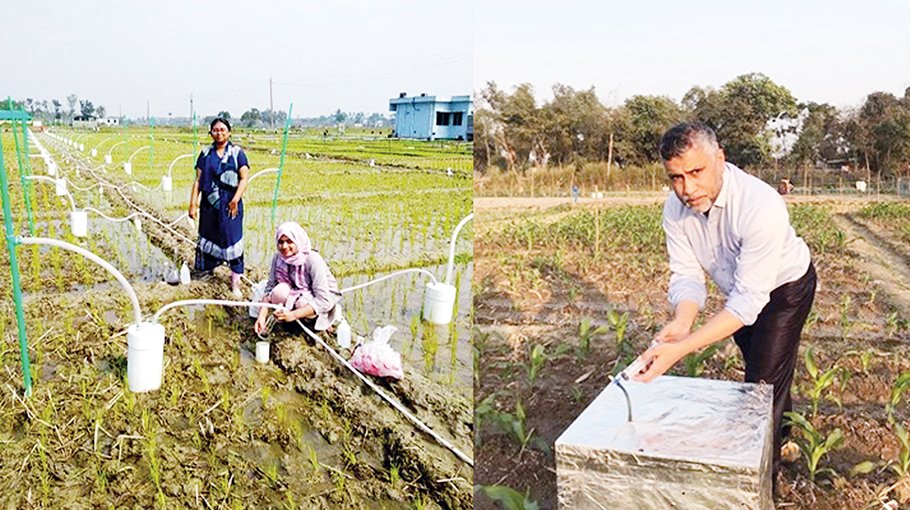BAU introduces mobile app ‘Nutrient Balance’

Researchers at Bangladesh Agricultural University (BAU) have introduced the "Nutrient Balance" mobile application, designed to revolutionize farming practices by optimizing fertilizer usage for five major crops: potato, Boro rice, Ropa Aman rice, Ropa Aush rice, and maize. Recognizing the critical role of Nitrogen, Potassium, Phosphorus, and Sulphur in plant growth, the app assists farmers in addressing deficiencies or excesses by providing precise recommendations on inorganic fertilizer application.
Available in both Bengali and English, the app simplifies the process for farmers by guiding them through selecting their district, upazila, and union. By inputting details such as rainfall, soil characteristics, and anticipated yield, users receive accurate calculations of the required fertilizer amount. Moreover, the app prompts users to provide information on organic fertilizer usage and residue, further refining its recommendations.
Beyond mere fertilizer calculations, Professor Dr. Mohammad Mofizur Rahman Jahangir, the lead researcher of the project at BAU, emphasized the app's comprehensive features.
It not only advises on optimal fertilizer application but also offers insights into nutrient absorption by plants, losses into water bodies, and contributions to air pollution, including ammonia gas and nitrous oxide emissions.
Initial testing conducted in three locations across Bangladesh – Sherpur in Bogura, Chandina in Cumilla, and Muktagacha in Mymensingh – yielded promising results. Ongoing development efforts are focused on enhancing the app's functionality, with plans for widespread dissemination among farmers nationwide.
The initiative, titled "Development of A Field Level Scale Nutrient Balance Calculator for Crops of an Intensively Managed Agricultural System," began in October 2020 and received three years of support from the Bangladesh Science Academy (BSA) and the United States Department of Agriculture (USDA). Notably, retired professor Dr. M Jahiruddin of soil science contributed as an assistant researcher to this project, enriching its expertise and insights.


